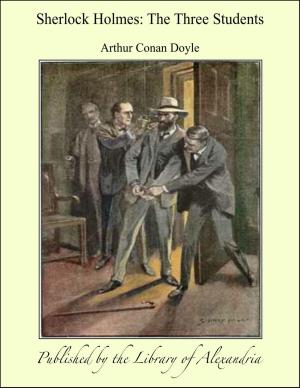A Rich Man's Relatives (Complete)
Nonfiction, Religion & Spirituality, New Age, History, Fiction & Literature| Author: | Robert Cleland | ISBN: | 9781465549846 |
| Publisher: | Library of Alexandria | Publication: | March 8, 2015 |
| Imprint: | Language: | English |
| Author: | Robert Cleland |
| ISBN: | 9781465549846 |
| Publisher: | Library of Alexandria |
| Publication: | March 8, 2015 |
| Imprint: | |
| Language: | English |
HOW HIS RELATIONS VEXED THE RICH MAN. One evening early in July, 1858, there might have been seen through the railings of a villa in a suburban street of Montreal, if only the thick shrubbery leaves would have permitted the view, a lady--Miss Judith Herkimer, to wit--seated in a quiet corner of the verandah, and partially concealed by the clusters of a wisteria trained to the pillar against which she leaned. Miss Judith had entered on that uninteresting middle time of life, when, though youth with its graces is undeniably of the past, the grey hairs which may perchance intrude among the brown, are not yet a crown of honour; the bloom and the promise of life are over, but the pathetic dignity of retrospect, with its suggestions of what has or what might have been, which make age beautiful, are not yet arrived. It was the sear and dusty afternoon stage of her pilgrimage and her spinsterhood, and there was a shade of severity in her aspect, as though living had grown into something to be struggled with and endured--the season for duty to a serious mind, seeing that the time for enjoyment is manifestly gone by. The flatness with which her hair was laid upon her temples, and then drawn back tightly without wave or pad to the apex of her head, and secured in the form of an onion, left no doubt as to the seriousness of Miss Judith's mind, while the severe ungracefulness of her dress argued an ascetic tendency of that aggressive kind which says, "brother, I would fast, therefore you shall go without your dinner"--a person tiresome rather than bad, but with the long chin of that obstinacy which can be so provoking when the understanding and imagination are too narrow to perceive the true relation of things. On the lawn before her stood a mulatto lad of about eighteen, dressed in the white linen suit of a house servant, and with a long apron suspended from his neck, as though he had been called from his glass-washing in the pantry
HOW HIS RELATIONS VEXED THE RICH MAN. One evening early in July, 1858, there might have been seen through the railings of a villa in a suburban street of Montreal, if only the thick shrubbery leaves would have permitted the view, a lady--Miss Judith Herkimer, to wit--seated in a quiet corner of the verandah, and partially concealed by the clusters of a wisteria trained to the pillar against which she leaned. Miss Judith had entered on that uninteresting middle time of life, when, though youth with its graces is undeniably of the past, the grey hairs which may perchance intrude among the brown, are not yet a crown of honour; the bloom and the promise of life are over, but the pathetic dignity of retrospect, with its suggestions of what has or what might have been, which make age beautiful, are not yet arrived. It was the sear and dusty afternoon stage of her pilgrimage and her spinsterhood, and there was a shade of severity in her aspect, as though living had grown into something to be struggled with and endured--the season for duty to a serious mind, seeing that the time for enjoyment is manifestly gone by. The flatness with which her hair was laid upon her temples, and then drawn back tightly without wave or pad to the apex of her head, and secured in the form of an onion, left no doubt as to the seriousness of Miss Judith's mind, while the severe ungracefulness of her dress argued an ascetic tendency of that aggressive kind which says, "brother, I would fast, therefore you shall go without your dinner"--a person tiresome rather than bad, but with the long chin of that obstinacy which can be so provoking when the understanding and imagination are too narrow to perceive the true relation of things. On the lawn before her stood a mulatto lad of about eighteen, dressed in the white linen suit of a house servant, and with a long apron suspended from his neck, as though he had been called from his glass-washing in the pantry















